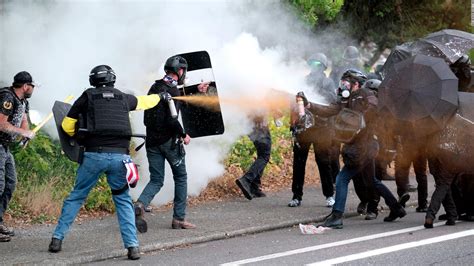
Russia is demanding that Ukraine formally recognize the Russian-annexed Crimean Peninsula as Russian territory, along with the independence of the self-proclaimed Donetsk and Luhansk People’s Republics, as a key condition for establishing a ceasefire and achieving lasting peace in the ongoing conflict, according to recent statements and reports surrounding ongoing, albeit stalled, negotiations.
Moscow’s insistence on these territorial concessions remains a major sticking point in peace talks, effectively halting any significant progress toward de-escalation. These demands, consistently reiterated by Russian officials, underscore Russia’s strategic objective of consolidating its territorial gains in Ukraine and fundamentally altering the geopolitical landscape of Eastern Europe.
The Kremlin maintains that the recognition of Crimea as Russian territory is non-negotiable, asserting that the peninsula’s annexation in 2014 was a result of a legitimate referendum reflecting the will of the Crimean population. Similarly, Russia views the independence of Donetsk and Luhansk, two regions in eastern Ukraine with significant Russian-speaking populations, as a necessary measure to protect the rights and security of these communities from alleged discrimination and aggression by the Ukrainian government.
Ukrainian officials, however, have vehemently rejected any territorial concessions to Russia, maintaining that the country’s territorial integrity is inviolable and that any attempt to cede territory would be a betrayal of national sovereignty and a violation of international law. Kyiv has repeatedly called for the complete withdrawal of Russian forces from all Ukrainian territory, including Crimea and the Donbas region, as a precondition for any meaningful peace negotiations.
The divergence in positions highlights the deep chasm between Russia and Ukraine and underscores the immense challenges in finding a mutually acceptable resolution to the conflict. While both sides have expressed a willingness to engage in negotiations, the fundamental disagreements over territorial issues continue to impede progress and prolong the fighting.
Geopolitical Implications and International Response
Russia’s territorial demands have far-reaching geopolitical implications, potentially setting a precedent for the redrawing of borders by force and undermining the principles of territorial integrity and national sovereignty enshrined in international law. If Russia were successful in achieving its objectives in Ukraine, it could embolden other states to pursue similar territorial ambitions, leading to increased instability and conflict in other parts of the world.
The international community has largely condemned Russia’s annexation of Crimea and its support for separatists in eastern Ukraine, imposing sanctions and other measures aimed at pressuring Moscow to reverse its course. The United States and its allies have provided significant military and economic assistance to Ukraine, helping the country defend itself against Russian aggression and resist attempts to undermine its sovereignty.
However, the international response to the conflict has been uneven, with some countries reluctant to take strong action against Russia due to economic or political considerations. This lack of unity has complicated efforts to resolve the conflict and has allowed Russia to continue pursuing its objectives in Ukraine with relative impunity.
The Stalled Negotiation Process
Despite numerous attempts to mediate a ceasefire and initiate peace negotiations, the conflict in Ukraine has remained deadlocked for months. Both sides have accused each other of sabotaging the negotiation process and of lacking genuine commitment to finding a peaceful resolution.
Russia has consistently accused Ukraine of using the negotiations as a smokescreen to buy time and regroup its forces, while Ukraine has accused Russia of making unrealistic demands and of using the negotiations to extract concessions that would undermine its sovereignty and territorial integrity.
The lack of trust between the two sides has further complicated the negotiation process, making it difficult to find common ground and to build confidence in the possibility of a lasting peace agreement. The involvement of international mediators, such as the United Nations and the European Union, has so far failed to break the deadlock and to bring the two sides closer to a resolution.
The Human Cost of the Conflict
The conflict in Ukraine has had a devastating impact on the civilian population, with millions of people displaced from their homes and thousands killed or injured. The fighting has also caused widespread destruction of infrastructure and has disrupted essential services, such as healthcare, education, and sanitation.
The United Nations has documented numerous cases of human rights violations committed by both sides in the conflict, including indiscriminate attacks on civilians, torture, and arbitrary detention. The conflict has also exacerbated existing social and economic problems in Ukraine, leading to increased poverty, unemployment, and inequality.
The humanitarian crisis in Ukraine has prompted a massive international relief effort, with aid organizations and governments providing assistance to those affected by the conflict. However, the scale of the crisis is so vast that it is difficult to meet all the needs of the affected population.
Possible Scenarios for the Future
The future of the conflict in Ukraine remains uncertain, with several possible scenarios ranging from a negotiated peace settlement to a protracted war of attrition.
One possible scenario is that the two sides eventually reach a negotiated agreement that addresses the key issues in dispute, such as territorial boundaries, security guarantees, and the status of the Russian language. However, given the deep divisions between the two sides and the lack of trust, this scenario appears unlikely in the near term.
Another possible scenario is that the conflict continues as a protracted war of attrition, with neither side able to achieve a decisive victory. This scenario could lead to further destruction and loss of life, as well as increased instability in the region.
A third possible scenario is that the conflict escalates, with the involvement of other countries or the use of more destructive weapons. This scenario could have catastrophic consequences for the region and the world.
The Path to Peace: A Complex and Uncertain Road
Achieving a lasting peace in Ukraine will require a comprehensive approach that addresses the underlying causes of the conflict and promotes reconciliation between the two sides. This will involve not only negotiations between Russia and Ukraine but also the engagement of the international community in supporting a peaceful resolution.
Key elements of a peace process could include:
- A ceasefire agreement: A durable ceasefire is essential to stop the fighting and create an environment conducive to negotiations.
- Territorial negotiations: Addressing the issue of territorial boundaries will be crucial to finding a mutually acceptable resolution.
- Security guarantees: Providing security guarantees to both Russia and Ukraine can help to build trust and prevent future conflicts.
- Economic assistance: Providing economic assistance to Ukraine can help to rebuild its economy and address the social and economic problems caused by the conflict.
- Reconciliation efforts: Promoting reconciliation between the two sides can help to heal the wounds of the conflict and build a more peaceful future.
The path to peace in Ukraine is complex and uncertain, but it is essential to continue working towards a peaceful resolution to the conflict. The human cost of the conflict is too high to allow it to continue indefinitely.
Deeper Dive into Russia’s Demands and Motivations
To fully grasp the gravity and complexity surrounding Russia’s demands, it is essential to delve deeper into the historical, political, and strategic motivations driving these demands. Russia’s insistence on recognizing Crimea and the Donbas republics is not merely about territorial expansion; it is deeply intertwined with Moscow’s broader geopolitical objectives and its perception of its role in the post-Soviet space.
The Crimean Annexation: A Historical and Strategic Perspective
The Crimean Peninsula holds significant historical and strategic importance for Russia. Historically, Crimea was part of Russia for centuries before being transferred to Ukraine in 1954 during the Soviet era. This historical connection is frequently invoked by Russian officials to justify the annexation, portraying it as a restoration of historical justice.
Strategically, Crimea provides Russia with a crucial naval base in the Black Sea, allowing Moscow to project its power throughout the region and beyond. The Sevastopol naval base is home to Russia’s Black Sea Fleet and provides Russia with access to the Mediterranean Sea and the Middle East. Losing control of Crimea would significantly weaken Russia’s military posture in the region and would limit its ability to exert influence in the Black Sea area.
Furthermore, Russia views Crimea as a region with a predominantly Russian-speaking population that has historically been aligned with Russia. Moscow claims that the annexation was carried out to protect the rights and interests of the Crimean population, who allegedly faced discrimination and persecution after the 2014 Ukrainian revolution.
The Donbas Conflict: Protecting Russian-Speaking Populations
The conflict in the Donbas region of eastern Ukraine, which includes the self-proclaimed Donetsk and Luhansk People’s Republics, has been ongoing since 2014. Russia has consistently denied direct involvement in the conflict, but it has provided military, financial, and political support to the separatists.
Moscow claims that its support for the separatists is aimed at protecting the rights and security of the Russian-speaking population in the Donbas, who allegedly face discrimination and aggression by the Ukrainian government. Russia accuses Kyiv of carrying out a campaign of “Russification” aimed at suppressing the Russian language and culture in the Donbas.
In addition to protecting Russian-speaking populations, Russia also views the Donbas conflict as a way to exert influence over Ukraine and to prevent the country from moving closer to the West. By supporting the separatists, Russia can destabilize Ukraine and create a situation where Kyiv is forced to take Moscow’s interests into account.
Beyond Territory: Russia’s Geopolitical Ambitions
Russia’s demands in Ukraine are not solely about territory; they are also about asserting its influence in the post-Soviet space and challenging the Western-led international order. Moscow views the expansion of NATO and the European Union as a threat to its security and its sphere of influence.
Russia accuses the West of meddling in Ukraine’s internal affairs and of supporting the 2014 revolution, which ousted the pro-Russian government of Viktor Yanukovych. Moscow believes that the West is trying to turn Ukraine into an anti-Russian state that will be used to undermine Russia’s security and its regional influence.
By demanding territorial concessions from Ukraine and by asserting its right to protect Russian-speaking populations, Russia is sending a message to the West that it will not tolerate what it sees as interference in its sphere of influence. Moscow is seeking to establish a new security order in Europe that takes into account Russia’s interests and concerns.
Ukraine’s Perspective: Sovereignty and Territorial Integrity
Ukraine, on the other hand, views Russia’s demands as a violation of its sovereignty and territorial integrity. Kyiv maintains that Crimea and the Donbas are integral parts of Ukraine and that any attempt to cede territory would be a betrayal of national interests.
Ukrainian officials argue that Russia’s annexation of Crimea was illegal and that the referendum that was held in Crimea in 2014 was a sham. They also accuse Russia of fabricating the conflict in the Donbas and of using it as a pretext to destabilize Ukraine and to prevent the country from moving closer to the West.
Ukraine is determined to resist Russia’s aggression and to defend its sovereignty and territorial integrity. Kyiv has called on the international community to provide it with military and economic assistance to help it defend itself against Russian aggression.
The Role of International Law
The conflict in Ukraine raises fundamental questions about the principles of international law, including the principles of territorial integrity, national sovereignty, and the prohibition of the use of force.
Russia’s annexation of Crimea and its support for separatists in eastern Ukraine violate the principle of territorial integrity, which states that states must respect the territorial boundaries of other states. Russia’s actions also violate the principle of national sovereignty, which states that states have the right to govern themselves without external interference.
The international community has largely condemned Russia’s actions as a violation of international law. The United Nations General Assembly has adopted resolutions condemning the annexation of Crimea and calling on Russia to respect Ukraine’s territorial integrity.
FAQ Section
1. What are Russia’s key demands for peace in Ukraine?
Russia’s primary demands include the formal recognition of the Crimean Peninsula as Russian territory and the independence of the self-proclaimed Donetsk and Luhansk People’s Republics in eastern Ukraine.
2. Why is Crimea so important to Russia?
Crimea holds historical and strategic significance for Russia. It was part of Russia for centuries and provides Russia with a crucial naval base in the Black Sea, enabling power projection in the region. Russia also views Crimea as having a predominantly Russian-speaking population that historically aligns with Russia.
3. What is Ukraine’s position on Russia’s demands?
Ukraine vehemently rejects any territorial concessions to Russia, asserting that its territorial integrity is inviolable. Kyiv demands the complete withdrawal of Russian forces from all Ukrainian territory, including Crimea and the Donbas region.
4. How has the international community responded to the conflict and Russia’s demands?
The international community, including the United States and its allies, has largely condemned Russia’s actions, imposing sanctions and providing military and economic assistance to Ukraine. However, responses have been uneven, complicating efforts to resolve the conflict.
5. What are some potential scenarios for the future of the conflict?
Possible scenarios range from a negotiated peace settlement to a protracted war of attrition. There is also a risk of escalation involving other countries or more destructive weapons. The future remains uncertain, requiring a comprehensive approach to address the conflict’s root causes and promote reconciliation.
The Long-Term Consequences of the Conflict
The conflict in Ukraine will have long-term consequences for the region and the world, regardless of how it is resolved. The conflict has already caused immense human suffering and has destabilized the region. It has also raised serious questions about the future of European security and the role of international law.
One of the long-term consequences of the conflict will be the erosion of trust between Russia and the West. The conflict has exposed deep divisions between the two sides and has made it more difficult to find common ground on other issues.
Another long-term consequence of the conflict will be the strengthening of NATO. The conflict has prompted many countries to increase their defense spending and to seek closer ties with NATO. This will make it more difficult for Russia to achieve its goal of weakening the alliance.
The conflict in Ukraine will also have long-term consequences for the Ukrainian economy. The conflict has caused widespread destruction of infrastructure and has disrupted essential services. It will take many years for Ukraine to recover from the economic damage caused by the conflict.
The Need for a Comprehensive and Sustainable Solution
To prevent future conflicts and to build a more peaceful and stable future for the region, it is essential to address the underlying causes of the conflict in Ukraine. This will require a comprehensive and sustainable solution that addresses the concerns of all parties involved.
A comprehensive solution should include:
- A political settlement: A political settlement that addresses the issue of territorial boundaries, security guarantees, and the status of the Russian language.
- Economic reconstruction: Economic assistance to Ukraine to help it rebuild its economy and address the social and economic problems caused by the conflict.
- Reconciliation: Efforts to promote reconciliation between the two sides and to heal the wounds of the conflict.
- International cooperation: International cooperation to support a peaceful resolution to the conflict and to prevent future conflicts.
The conflict in Ukraine is a complex and challenging problem, but it is not insurmountable. By working together, the international community can help to find a peaceful and sustainable solution that will benefit all parties involved.
The Potential for a Frozen Conflict
One of the most concerning potential outcomes of the current situation is the establishment of a “frozen conflict.” This scenario would involve a cessation of active hostilities but without a formal peace agreement or resolution of the underlying issues. This could lead to a prolonged period of instability, with sporadic flare-ups of violence and continued suffering for the civilian population.
Frozen conflicts often create environments conducive to organized crime, smuggling, and other illicit activities. They also serve as a breeding ground for extremism and can be exploited by external actors seeking to destabilize the region.
The risk of a frozen conflict in Ukraine is significant, given the deep divisions between the parties and the lack of progress in negotiations. Preventing this outcome requires a concerted effort by the international community to maintain pressure on both sides to engage in meaningful dialogue and to address the root causes of the conflict.
The Role of Diplomacy and Dialogue
Despite the challenges and setbacks, diplomacy and dialogue remain the most viable paths to a lasting peace in Ukraine. While military force may be used to defend territory or deter aggression, it cannot resolve the underlying political and social issues that drive the conflict.
Diplomatic efforts should focus on:
- Establishing a ceasefire: A durable and verifiable ceasefire is essential to create an environment conducive to negotiations.
- Facilitating direct talks: Direct talks between Russia and Ukraine are necessary to address the core issues in dispute.
- Engaging international mediators: International mediators can play a crucial role in facilitating dialogue and helping the parties find common ground.
- Building confidence-building measures: Confidence-building measures, such as prisoner exchanges and joint patrols, can help to reduce tensions and build trust.
The Imperative of a Human-Centered Approach
In the pursuit of peace, it is crucial to prioritize the needs and well-being of the civilian population. The conflict has had a devastating impact on the lives of millions of Ukrainians, and any resolution must take into account their rights and interests.
A human-centered approach should include:
- Protecting civilians: All parties to the conflict must respect international humanitarian law and take all feasible measures to protect civilians from harm.
- Providing humanitarian assistance: Humanitarian organizations must be given unimpeded access to provide assistance to those in need.
- Addressing displacement: Solutions must be found for the millions of Ukrainians who have been displaced from their homes.
- Promoting accountability: Those responsible for war crimes and other serious human rights violations must be held accountable.
Conclusion: A Moment of Peril and Opportunity
The conflict in Ukraine represents a moment of peril and opportunity. The risks of escalation and prolonged conflict are real, but so too is the potential for a lasting peace. By prioritizing diplomacy, dialogue, and a human-centered approach, the international community can help to create a more secure and prosperous future for Ukraine and the region. The path forward will be difficult and uncertain, but the stakes are too high to give up on the pursuit of peace.









